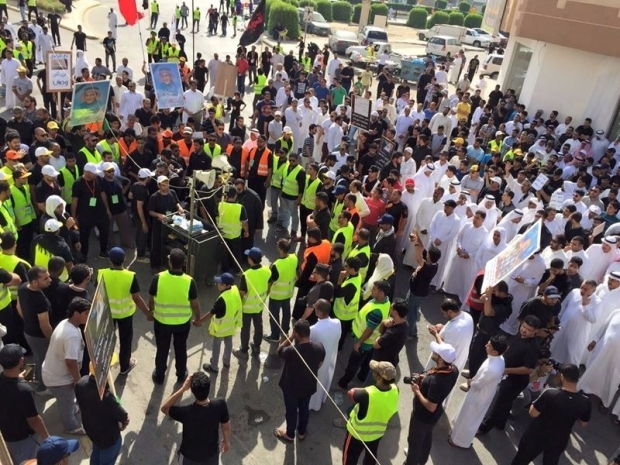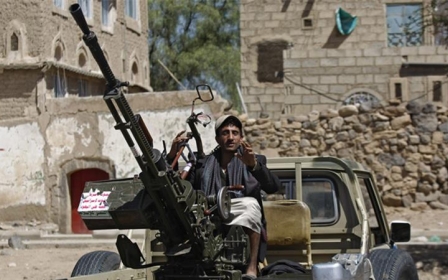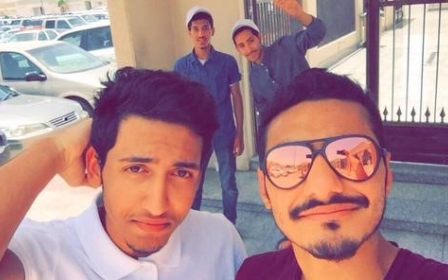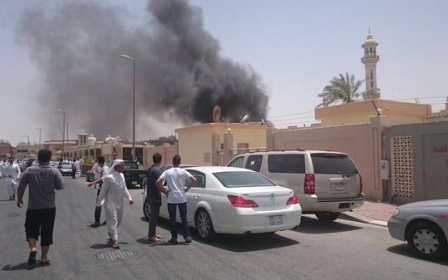Saudi's Shia establish self-defence committees, after deadly mosque attacks
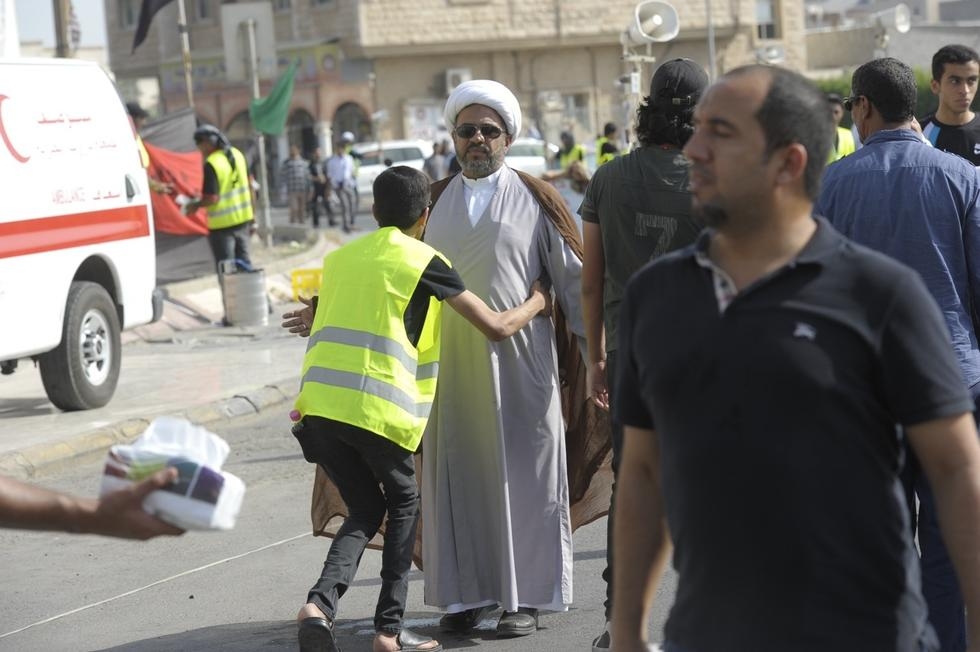
Days after two deadly bombing attacks targeting Shia mosques in Saudi Arabia, locals in the Qatif region of the Eastern Province have established volunteer civil self-defence committees – and locals have told Middle East Eye that the initiative is being cautiously accepted by the official police force.
At least 28 people have been killed in attacks on consecutive Fridays claimed by the Islamic State group (IS), who have called for Shia Muslims to be 'cleansed' from the Arabian Peninsula. Locals have blamed the suicide bombings on rising levels of sectarianism in the kingdom, which they claim is being tolerated – and even promoted – by state authorities.
The government, for its part, has arrested more than 20 people in connection with the attacks and pledged to crack down on sympathisers of IS. King Salman said the bombings were a “heinous crime” that contradict “the values of Islam and humanity”.
The unarmed committees - bands of young volunteers and activists - were first established in the aftermath of the bombing at the Imam Ali mosque in the village of Qudaih on 22 May, ostensibly to facilitate the arrival of hundreds of thousands of people who came to attend the funerals of the 24 people killed.
Local community leaders gathered hundreds of volunteers who set up car parks outside Qudaih, and buses were arranged to transport mourners to the funeral procession. Committee members frisked people individually and searched arriving vehicles.
Since the mass funeral on 25 May, the committees have extended into the city of Qatif and 20 surrounding villages. More than 150 people are taking part in each committee, in each village, locals told Middle East Eye.
Checkpoints have been established where four to five volunteers man each monitor vehicles and people entering each village. They have no weapons or electronic devices to detect bombs, but instead the idea is to question people entering who are not from the Eastern Province.
“They look at the faces of people coming in – to see if they are from here or not,” said one local, who asked to remain anonymous. “They also look inside cars to make sure there is nothing suspicious inside.”
The committees were set up by residents distrustful of local police, said the Qudaih resident, who explained that police at government checkpoints stationed at entrances into the Qatif region have targetted suspected demonstrators, straining relations with local people.
The government-run Qatif checkpoints were established in 2011 after a protest movement, inspired by the Arab Spring, held mass demonstrations calling for an end to perceived discrimination against the Shia community, who make up 10 to 15 percent of Saudi Arabia’s 29 million population.
Over the proceeding four years sporadic clashes between security forces and protesters have led to the deaths of dozens of people.
An activist in Qatif told Middle East Eye the government checkpoints are manned by young men in their early 20s and that since the recent attacks their focus hasn’t changed. They said the guards still stop Qatif residents who they suspect of being involved in anti-government protests, rather than working to protect the community from IS suicide attackers.
“They have done nothing to protect the people here,” said Mohammed al-Saeedi, who lives in Qudaih. “We will protect ourselves, by ourselves. The police can come to support us but they will not be the ones to protect the community.”
Saeedi said that there have been no police officers on the streets of Qatif and its villages since the protest movement erupted in 2011. Before, he said, there were only one or two patrolling but now there are none and when officers are called to attend an incident they do not come.
“They tell us your area is out of our control – then they say to write a report on whatever the incident is and attend the police station directly,” he said. “There is a suspicion among the people here that some of the police – who are not from this area – may sympathise with the terrorists who are attacking us.”
Shias in Saudi are mostly barred from working for the police, interior ministry, army and national guard – a policy criticised in a recent article by Cambridge academic and Gulf specialist Toby Matthiesen for the Washington Post.
And with trust at an all-time low between police and locals in Qatif, the government forces appear to have accepted the self-defence committees, according to the Qudaih resident who asked to remain anonymous.
“The police realise they cannot do their job – and if they accept the committees then it will improve security for the community and alleviate security responsibilities for the government,” the resident said.
“The committees are establishing a relationship with the police – everyone here wants there to be respect between the local committees and the police, for the good of the community.”
Local activist Saeedi said that there is evidence the committees and police are working together, albeit with caution on both sides.
He said that on Sunday volunteers arrested a man entering the small village of al-Aujum. The guards stopped the man because he said he had travelled to the village from Dammam - some 25 km away - to have a haircut, which was deemed to be suspicious. The self-defence committee called the police who then came and arrested the man. It is not known if the detainee was planning an attack, but Saeedi said it was evidence of a burgeoning working relationship.
However, there is still a negotiation going on between police and the committees over the scale of power held by volunteers. On Tuesday, 10 people were arrested by police in the villages of Awamiyah and Qudaih for working independently of the committees.Local leaders have since gone to the police station and negotiated their release – and the men have been freed on condition they signed a pledge that they will only man checkpoints in coordination with community leaders.
The government has not yet commented on the self-defence committees, but local activist Saeedi said that they have likely accepted it is more effective to allow their establishment, rather than confront an already testy community.
“After the Dammam attack the government presumably realised they didn’t have the right to stop people forming committees to protect the community – we have to do something to stop these attacks,” Saeedi said.
Middle East Eye propose une couverture et une analyse indépendantes et incomparables du Moyen-Orient, de l’Afrique du Nord et d’autres régions du monde. Pour en savoir plus sur la reprise de ce contenu et les frais qui s’appliquent, veuillez remplir ce formulaire [en anglais]. Pour en savoir plus sur MEE, cliquez ici [en anglais].


